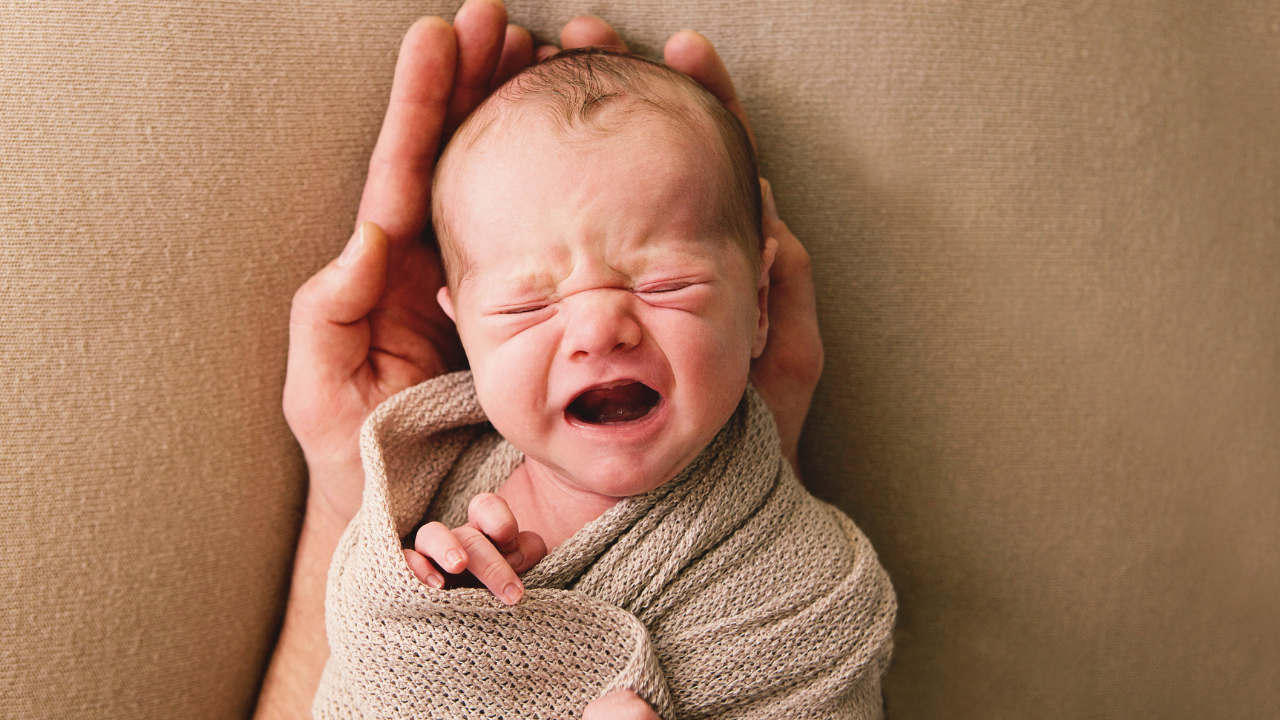
Adoption Starts with Trauma
Jul 03, 2025Adoption doesn’t begin with love.
It begins with loss.
And sometimes, even earlier, it begins with violence.
Not every baby is conceived in safety.
Not every pregnancy is chosen.
Some children begin their lives in the aftermath of rape, coercion, addiction, abandonment.
Some grow in wombs heavy with grief.
And before they ever take their first breath, a choice—or a lack of choice—separates them from the mother whose body made them.
This is the hidden beginning of many adoption stories.
Mine included.
When I became a mom, I didn’t have a birth plan. There was no playlist, no candles, no doula whispering encouragement. There was a hospital hallway and a woman I’d just met, both of us crying when we first embraced. She handed me two tiny babies—twins—who had been alive on this earth for just five days.
There was love in that moment.
But it was born inside of heartbreak.
A System Built on Separation
Adoption is often dressed up as a fairytale: a rescue, a blessing, a perfect match. But strip away the sweet language and what you find is this: a family broken apart, usually long before a new one is formed.
And far too often, that break is not just emotional. It’s systemic. It’s generational. It’s racial. It’s economic.
In 2024, my home country, The Netherlands, made a bold and painful decision: it abolished international adoption altogether, naming the widespread corruption, coercion, and trafficking that have stained the adoption industrial complex for decades. It was a recognition that love isn’t enough to justify complicity in a global machine that profits from human separation.
I've met adoptees who’ve told me, with haunting clarity, “I was sold on the black market.”
Not metaphorically—literally.
Adoption, in many cases, has not just mirrored the mechanisms of trafficking.
It has been trafficking.
The industry surrounding adoption—especially international and transracial adoption—has often placed paperwork over people, profit over protection, and adoptive desire over a child's right to remain with their family or culture whenever possible.
And still, I find myself quietly wondering:
Was part of the unspoken motivation to keep the population as light as possible?
There’s a growing movement within adoption communities today—one that says:
We’re not against care.
We’re against exploitation.
We’re not anti-family.
We’re anti-industry.
Most adoptive parents still don’t want to hear this.
They want to believe their story is the exception.
They want to believe that love cancels out the loss.
But adoption, no matter how loving the outcome, always begins with a fracture.
The Luxury of Choice
After I brought my twins home, I found myself surrounded by other new moms—many of them glowing with joy, their bodies still soft from birth, their phones filled with baby tracker apps and birth photos.
They were feeding their babies bone broth and debating oat milk vs. almond.
Avoiding sushi and pineapple and “too many nightshades.”
Using non-toxic diapers and hand-knitted bonnets.
Hiring doulas and music therapists.
One mom told me her placenta was in her freezer, waiting to be turned into capsules.
Another refused to use ultrasounds because “they can alter baby’s vibration.”
Most were adamant about delaying all vaccines.
Meanwhile, my newborns had received a Hep B shot within hours of birth. I hadn’t been consulted. I hadn’t even known.
There was no nesting period for me. No gentle transition into motherhood.
Just an urgent call and a one-way flight to Florida.
And then—two tiny humans in my arms, and a sea of paperwork to sign.
In those first weeks, I drove all over Portland collecting breast milk from moms who had too much. I’d pack a cooler in the car, ring doorbells, thank strangers. One woman, in an effort to be transparent, said softly, “I drank raspberry leaf tea—will that be okay?”
And I thought—raspberry tea? I’ll take raspberry tea over most of what my babies have already been exposed to.
It was a tongue-in-cheek moment. And painful at the same time.
They were worried about tea. I was worried about trauma.
Second Best and Still Sacred
I didn’t carry my babies, but I’ve carried their grief.
I’ve held their history, even the parts that weren’t handed to me.
Even the parts I wasn’t supposed to know.
Adoption is not a solution. It’s a response to a crisis.
It’s the second-best option when the best one—keeping families together—isn’t possible or allowed.
And yes, it can be full of love. Fierce, protective, beautiful love.
But we can’t pretend that erases the wound.
The depth of that wound—the depth of this loss—only became clear to me as I grew into motherhood.
As I watched my children grow,
As they began to ask questions about where they came from,
As I learned more about their birth family—about the pain, the beauty, the healing, the intergenerational grief…
I began to understand:
This is a lot.
A lot to sit with.
A lot to live with.
A lot to slowly, painfully, get to know.
And yet—it is sacred.
It is precious.
It is deeply human.
You Don’t Have to Carry This Alone
If you're navigating adoption—whether you're an adoptive parent, a birth parent, or someone walking the line between—I want you to know:
If this speaks to something deep in you—you're not alone.
Whether you're an adoptive parent trying to make sense of the grief beneath the love,
a birth parent holding an invisible loss,
or someone waking up to the uncomfortable truths of adoption…
you don’t have to carry it all by yourself.
This work is tender. It's layered. It's sacred.
If you're ready to talk—if you just want someone to walk beside you without fixing or sugarcoating—I’m here.
Big hug,
Marion
Founder, White Awake Parenting
Don't miss a beat!
New moves, motivation, and classes delivered to your inbox.
We hate SPAM. We will never sell your information, for any reason.
